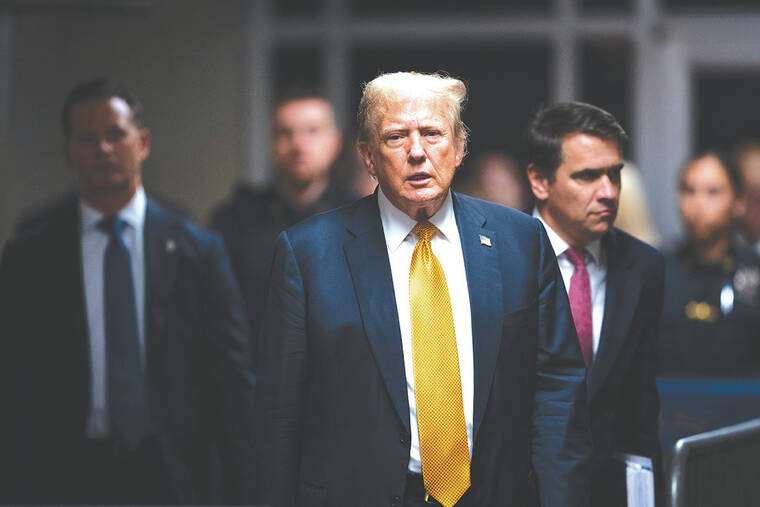Trump seeks to delay his sentencing until after election
NEW YORK — Former President Donald Trump is seeking to delay his criminal sentencing in Manhattan until after the presidential election, imploring the judge overseeing the case to allow him additional time to challenge his conviction.
In a letter to the judge that was made public Thursday, lawyers for Trump, the Republican presidential nominee, noted that his sentencing was set for Sept. 18, just weeks before Election Day. The lawyers argued that the timing could improperly influence voters and compromise Trump’s efforts to reverse his conviction on charges that he falsified records to cover up a sex scandal.
ADVERTISING
“Sentencing is currently scheduled to occur after the commencement of early voting in the presidential election,” the lawyers, Todd Blanche and Emil Bove, wrote. “By adjourning the sentencing until after that election — which is of paramount importance to the entire nation,” they added, “the court would reduce, even if not eliminate, issues regarding the integrity of any future proceedings.”
Trump, who has routinely sought delays in his four criminal cases, wants to use the extra time to fight his conviction, an effort that hinges on a recent U.S. Supreme Court ruling granting him broad immunity for official actions as president.
His lawyers cited that decision in their request that the judge, Justice Juan M. Merchan, overturn the verdict and throw out the charges. Prosecutors from the Manhattan district attorney’s office, which brought the case, noted in response that it had nothing to do with Trump’s official acts in the White House.
Merchan is weighing Trump’s immunity bid, and has said he will rule Sept. 16, two days before the sentencing. Trump faces up to four years in prison, though the judge could impose a shorter sentence or only probation.
In the new letter to the judge, Trump’s lawyers argued that the two-day window between the immunity ruling and the sentencing was too short.
They argued that the sentencing should be postponed to “allow President Trump adequate time to assess and pursue state and federal appellate options in response to any adverse ruling.”
This article originally appeared in The New York Times.
© 2024 The New York Times Company





